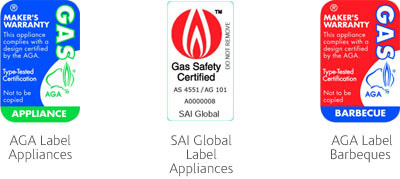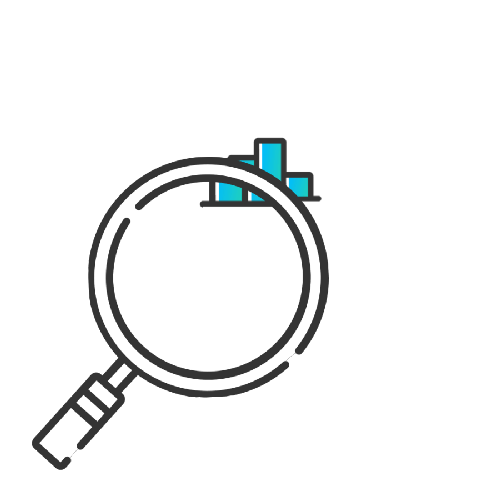Error message title

Error message title
Searching great energy plans for you
Gas awareness and safety
In the event of an emergency call 000.
Here are few tips about gas safety we'd like to share with you to ensure your family, friends or work colleagues stay safe.
Only use licensed installers
Your gas appliances are your responsibility. All work done on your gas appliances or gas installation must be carried out by a licensed gasfitter at your cost. You can ask to see the gasfitter's identity card which includes a photograph, license status and what work they are qualified to perform to ensure they are licensed. If you are having a gas appliance or gas pipe installed, make sure your gasfitter provides you with a gas certificate of compliance. Only a licensed gasfitter can legally issue a gas certificate. If you have any queries, links to each of the state and territory regulators can be found at the bottom of the page.
Only use certified gas appliances
Only certified gas appliances may be operated on gas. To check the safety of your home gas appliances look for a blue "Maker's Warranty" label, or a white Gas Safety Certified label. You'll notice most household natural gas appliances will have either one, or they may have both of these labels. Barbecues will have either a red label, white label or a combination of both. Barbecues and other outdoor portable gas appliances should not be used indoors in place of other appliances. Certification labels assure you that an appliance has been approved and certified to Australian Standards by a recognised certifier. The Australian Gas Association (AGA) and SAI Global appliance certification schemes meet the requirements of the relevant safety regulators and cover prescribed domestic and light commercial gas appliances.

Note: Domestic barbecues can be connected to natural gas or LPG. However, please be aware that LPG and natural gas are different and you should always use correct appliance for the type of gas. Operating an appliance on the wrong type of gas can be hazardous.
Natural gas safety
The more you know about natural gas, the quicker you can respond to a gas leak. Natural gas is a fossil fuel consisting of mainly methane. It is odourless and colourless and lighter than air, so in the event of a gas leak it may quickly escape, rise and disperse in the air. For safety reasons, an odour is added before it is piped into your home so a gas leak can be quickly detected. Please familiarise yourself with the smell of unburned gas so that you can easily recognise a gas leak if it was to occur.
What to do if there is as gas fire
Call 000 in the event of an emergency (use a phone away from the affected area)
What to do in case of a gas leak inside your home
DO
- Go outside opening doors and windows and extinguish any open flames along the way
- Turn off supply at the gas meter. (You'll find your gas meter on an outside wall of your home or near the front boundary.
- Simply turn the control tap on the meter so that it is at right angles to the pipe. When the handle is at right angles to the pipe the meter has been turned off)
- Open doors and windows for ventilation
- Contact your licensed gasfitter
- Call 000 in the event of an emergency (use a phone away from the affected area)
- Evacuate the area if the smell persists and is strong
Note: in the event of a leak where the meter is turned off the odour will fade over time. Before turning the gas back on and relighting appliances make sure you have Contacted your licensed gasfitter to check your appliances and installations
DON'T
- Work on any gas pipes or appliances yourself
- Use a naked flame in the area
- Operate any electrical lights, power, fans etc in the area
What to do in case of a gas leak outside your home
In the event that you detect a gas leak outside your home call either 000 in the event of an emergency or contact your gas distributor who’s details can be located on the top right-hand corner of your bill or on our Faults and Emergencies page for the state your home is located in.
Note: where you have detected a gas leak do not remain in the immediate area or make calls from near the suspected leak, smoke, use electronic or electrical appliances including torches in the area until it is confirmed as safe by the distribution business.
Everyday gas safety
If your gas burner does not light the first time, turn off the gas. Wait for the gas smell to clear for at least 5 minutes before trying to light the burner again.
If you suspect a gas leak in your home
Turn off all gas appliances and pilot lights. Extinguish all naked flames. Don't operate any gas or electrical appliances, lights, power or use a naked flame or electrical fan in the area.
Check your gas meter test dial. If the test dial is turning when no gas appliances are on, then you may have a gas leak. Turn off the gas meter, contact your local gasfitter and have your gas installation safely checked.
Care of your gas appliances
- Do not attempt to fix them or service them yourself
- Have your appliances regularly serviced according to the manufacturer's recommended service schedule
- Do not leave clothes, papers or any inflammable material near gas appliances or burners
- Never block any permanent ventilation openings (for example gas heaters including ducted units require ventilation and or a flue or chimney to operate correctly. Blocking these can be dangerous)
- Never operate natural gas appliances on any other type of gas
- Never operate LPG or portable gas appliances indoors
- Do not use force to open gas taps
- Only use appliances for the purpose which they were designed for example, do not use an oven to heat your room or dry your clothes
- Keep a gas oven and hot plates clean - do not allow fat and burned food to build up
- Turn gas heaters off when you leave the house or go to sleep
- If you suspect your heater is causing you to feel dizzy, sick, weak or sleepy, turn it off and call a licensed gasfitter
Useful links
- Energy Safe Victoria – www.esv.vic.gov.au
- Office of the Technical Regulator - www.sa.gov.au
- Department of Mines and Energy - www.commerce.wa.gov.au
- Department of Planning and Environment – Energy and Resources - www.energy.nsw.gov.au/
- Queensland Emergency Services and Safety - www.qld.gov.au
- Australian Capital Territory Environment, Planning and Sustainable Development Directorate – Planning - www.planning.act.gov.au
- Department of Mines Industrial Regulation and Safety www.dmirs.wa.gov.au
- Greenhouse Gas Disclosure - Greenhouse Gas Disclosure
- Office of Consumer and Business Affairs - www.cbs.sa.gov.au
Didn’t find what you were looking for?
Enter your search topic here
